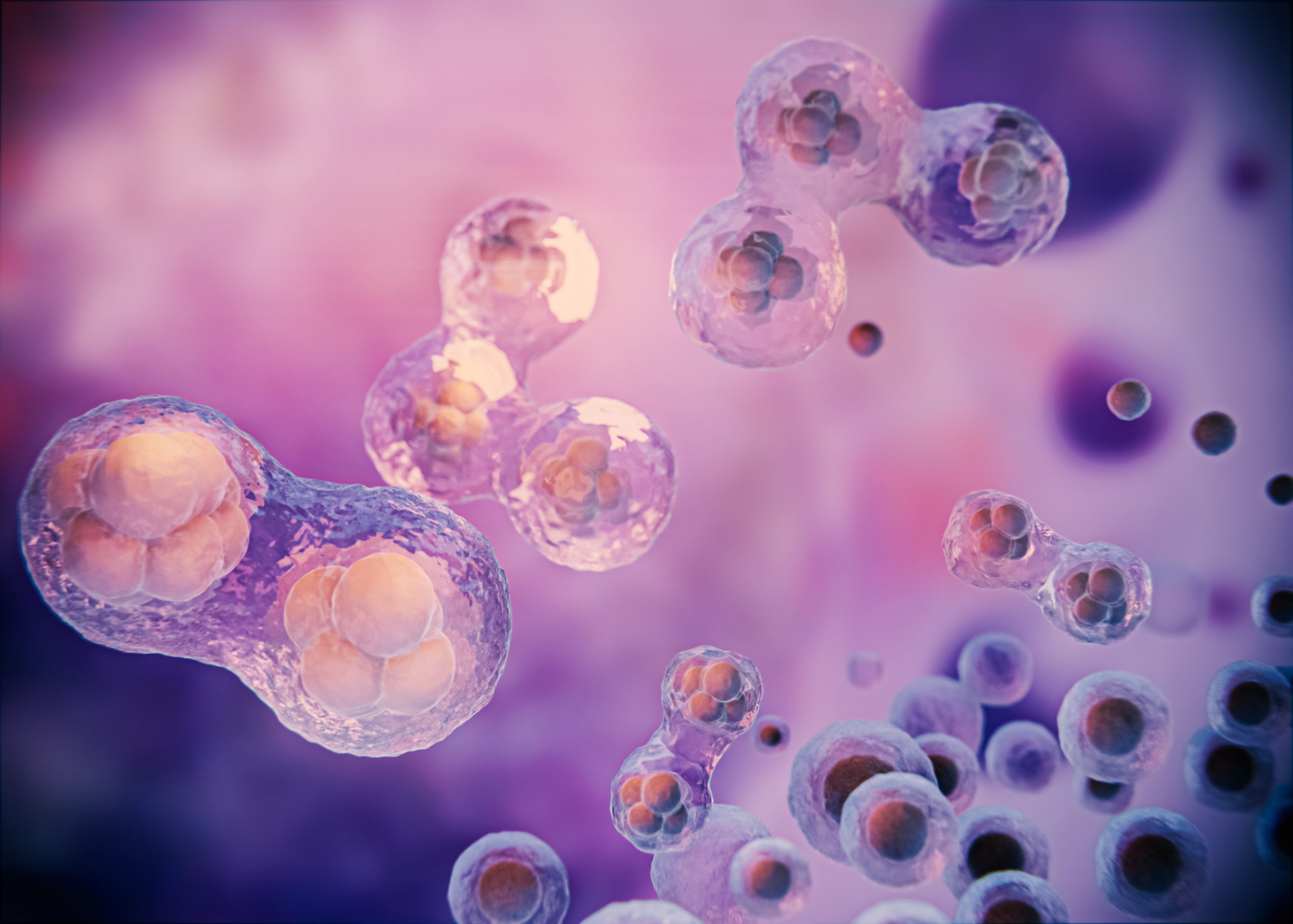

A recent study in a preclinical model by Brigham and Women’s Hospital researchers shows the potential for restoring fertility after the ovaries have stopped working. Adult stem cells, the researchers discovered, may restore healthy hormone levels following chemotherapy and lead to spontaneous conception, resulting in the birth of living mice. The study’s findings could alter fertility choices for women suffering from premature ovarian failure. The findings were published in the journal eBioMedicine.
The preclinical study found that introducing ovarian tissue-derived differentiated induced pluripotent stem cells into mice with premature ovarian failure caused by hereditary disorders and chemotherapy can restore hormone production and fertility.
“This proof-of-principle study shows that you can take non-reproductive cells and make them into functional eggs that can develop into multiple generations of live animals,” said corresponding author Raymond Manohar Anchan, MD, Ph.D., director of the stem cell biology and regenerative medicine research laboratory in the Brigham’s Center for Infertility and Reproductive Surgery. “The study is exciting because it gives hope to patients with ovarian failure that they may be able to have biological children and make reproductive hormones.”
Cell therapy holds great promise for treating incurable diseases, according to studies like this one. The Gene and Cell Therapy Institute at Mass General Brigham is assisting in the translation of scientific discoveries generated by researchers into first-in-human clinical trials and, ultimately, life-changing treatments for patients. The Institute’s comprehensive approach distinguishes it from others in the field, assisting researchers in swiftly developing innovative therapeutics and pushing the technological and clinical frontiers of this new frontier.
Premature ovarian failure affects about 5% of women due to cancer treatment or hereditary factors. Chemotherapy-related infertility is predicted to rise as cancer rates among young individuals continue to climb. When a person’s ovaries fail, their hormone levels drop, and they lose the ability to produce eggs and have children. There are currently no treatments available to restore their fertility following ovarian failure. People with ovarian failure must use donated or frozen eggs or embryos to bear children.
Ovarian failure can also lead to other health problems caused by decreased hormone levels. People suffering from ovarian failure may experience bone loss as well as sexual and cardiovascular problems. Although synthetic hormone replacement treatment can be beneficial, there is less research on its long-term usage in adolescents and young people.
Previous research has shown that granulosa cells from the mouse ovary can be utilized to generate induced pluripotent stem cells. These stem cells have the potential to become any type of cell in the body. The researchers transformed them into ovarian cells and demonstrated in the lab that the cells produce reproductive hormones such as estrogen and progesterone and can develop into egg cells.
The researchers discovered that injecting stem cells restored mice hormone levels and fertility, including the capacity to naturally conceive and give birth to live mouse pups. Interestingly, scientists discovered that injecting stem cells into one ovary appeared to repair the other, resuming egg production.
“I think that was the most exciting finding. We were able to get some of the animals’ autologous eggs to come resume development in both ovaries, not just the ovary we injected,” Anchan said. “The stem cells must be secreting a factor promoting this healing process. We’re now looking at what the factor or factors might be. Identifying such a factor or factors would be doubly exciting because perhaps we can treat some patients with this factor without having to inject any cells.”
The study’s limitations include the fact that it was conducted on mice. There is no evidence that this can reverse chemotherapy related fertility loss in humans. Using generated stem cells to conceive new humans may raise ethical concerns. The researchers are unsure whether the puppies born from these stem cell-derived eggs are healthy and normal beyond surviving birth and being able to reproduce. Longer-term investigations on the children of these experiments are currently underway.
more recommended stories
 Nanoplastics in Brain Tissue and Neurological Risk
Nanoplastics in Brain Tissue and Neurological RiskKey Takeaways for HCPs Nanoplastics are.
 AI Predicts Chronic GVHD Risk After Stem Cell Transplant
AI Predicts Chronic GVHD Risk After Stem Cell TransplantKey Takeaways A new AI-driven tool,.
 Red Meat Consumption Linked to Higher Diabetes Odds
Red Meat Consumption Linked to Higher Diabetes OddsKey Takeaways Higher intake of total,.
 Pediatric Crohn’s Disease Microbial Signature Identified
Pediatric Crohn’s Disease Microbial Signature IdentifiedKey Points at a Glance NYU.
 Nanovaccine Design Boosts Immune Attack on HPV Tumors
Nanovaccine Design Boosts Immune Attack on HPV TumorsKey Highlights Reconfiguring peptide orientation significantly.
 High-Fat Diets Cause Damage to Metabolic Health
High-Fat Diets Cause Damage to Metabolic HealthKey Points Takeaways High-fat and ketogenic.
 Acute Ischemic Stroke: New Evidence for Neuroprotection
Acute Ischemic Stroke: New Evidence for NeuroprotectionKey Highlights A Phase III clinical.
 Statins Rarely Cause Side Effects, Large Trials Show
Statins Rarely Cause Side Effects, Large Trials ShowKey Points at a Glance Large.
 Anxiety Reduction and Emotional Support on Social Media
Anxiety Reduction and Emotional Support on Social MediaKey Summary Anxiety commonly begins in.
 Liquid Biopsy Measures Epigenetic Instability in Cancer
Liquid Biopsy Measures Epigenetic Instability in CancerKey Takeaways Johns Hopkins researchers developed.

Leave a Comment